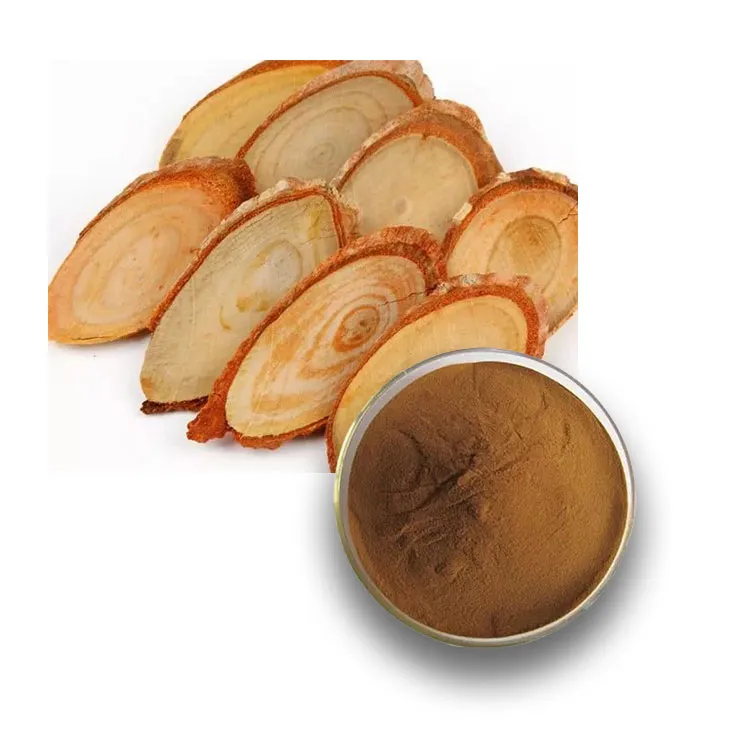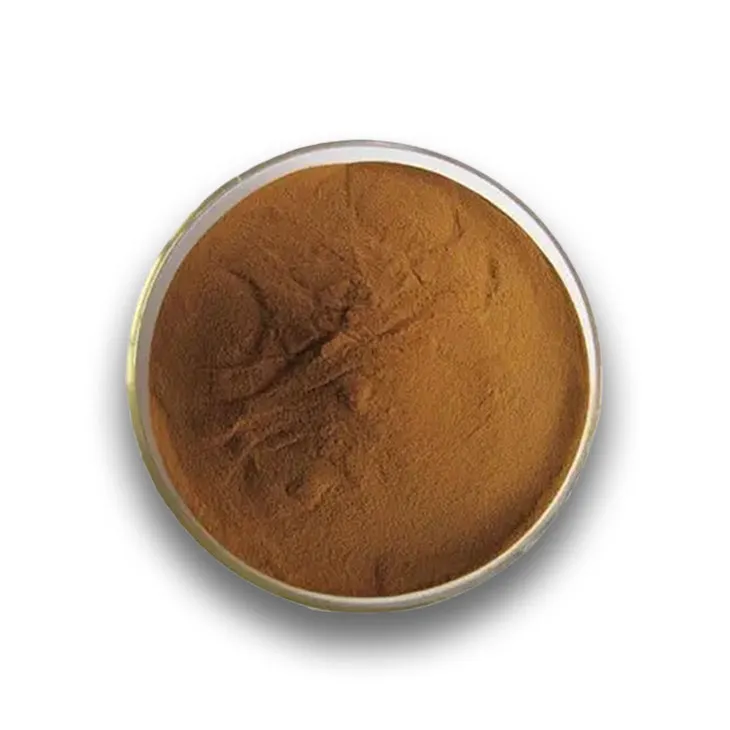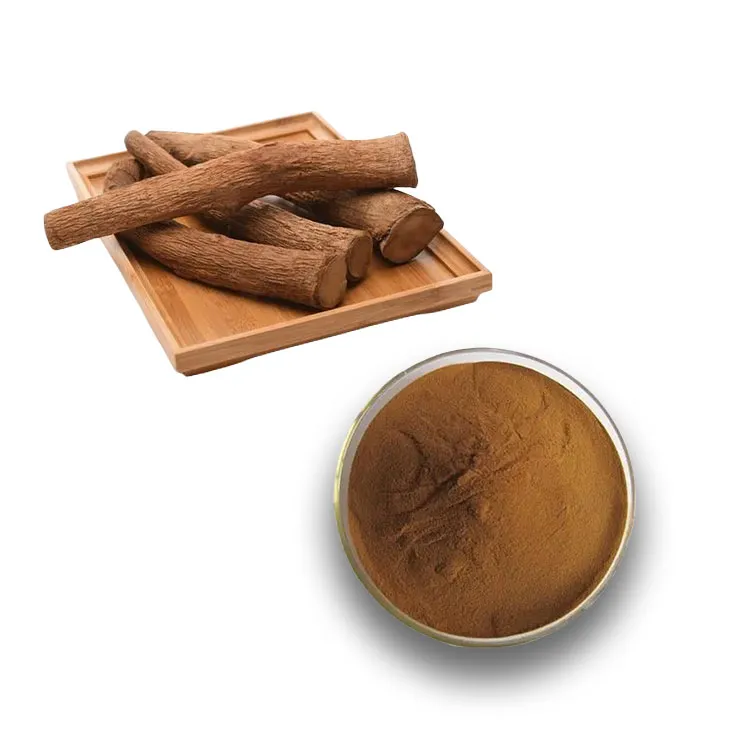- 0086-571-85302990
- sales@greenskybio.com
The best source of natural Tongkat Ali extract powder.
2024-12-01

1. Introduction
Tongkat Ali Extract powder has emerged as a highly sought - after supplement in recent years, owing to its potential health benefits. It is believed to enhance male vitality, boost testosterone levels, improve energy, and offer various other health - promoting properties. However, the quality of Tongkat Ali Extract powder can vary significantly depending on its source. In this article, we will explore the best natural sources of Tongkat Ali Extract powder, taking into account factors such as soil quality, climate conditions, and native ecosystems.

2. The significance of natural sources
Natural sources play a crucial role in determining the quality of Tongkat Ali Extract Powder. When sourced from its natural habitats or well - managed farms, the plant is more likely to contain a higher concentration of active compounds. Natural growth conditions allow the plant to develop its full potential, which is reflected in the potency of the extract.

3. Ideal soil quality
3.1. Nutrient - rich soil
Tongkat Ali thrives in soil that is rich in nutrients. Soils with a good balance of nitrogen, phosphorus, and potassium are ideal. Nitrogen is essential for leaf and stem growth, phosphorus promotes root development and flowering, and potassium aids in overall plant health and stress tolerance.3.2. Well - drained soil
Well - drained soil is another key factor. Standing water can lead to root rot and other diseases, which can reduce the quality of the Tongkat Ali plant. Sandy loam or loamy soils that allow water to drain freely while still retaining some moisture are optimal.3.3. Organic matter content
High levels of organic matter in the soil provide a slow - release source of nutrients and improve soil structure. Compost, leaf litter, and other forms of organic matter can enhance the growth of Tongkat Ali plants, resulting in a more potent extract.
4. Climate conditions
4.1. Tropical climate
Tongkat Ali is native to tropical regions, and it requires a warm and humid climate to grow well. Temperatures between 20 - 30°C are ideal, as the plant may not tolerate frost or extreme cold. The high humidity in tropical regions also helps to keep the plant hydrated and promotes its growth.4.2. Rainfall patterns
Adequate rainfall is necessary for Tongkat Ali. However, it also needs a dry season to stimulate flowering and seed production. A monsoon - like climate with distinct wet and dry seasons can be beneficial for the plant's growth cycle. Too much continuous rainfall can lead to waterlogging, which, as mentioned earlier, is detrimental to the plant.4.3. Sunlight exposure
Tongkat Ali plants require sufficient sunlight for photosynthesis. They typically need partial to full sunlight exposure. In its natural habitat, it can be found growing under the canopy of larger trees, receiving dappled sunlight. When cultivated, ensuring the right amount of sunlight is crucial for the production of high - quality plants for extract powder.5. Native ecosystems
5.1. Rainforests
The rainforest is the natural home of Tongkat Ali. The complex ecosystem of the rainforest provides a unique environment for the plant to grow. The presence of other plants, animals, and microorganisms creates a symbiotic relationship. For example, certain fungi in the soil can form mycorrhizal associations with Tongkat Ali roots, helping the plant to absorb nutrients more efficiently.5.2. Forest floors
On the forest floor, Tongkat Ali benefits from the leaf litter and decaying organic matter. This provides a natural source of nutrients and helps to maintain the soil moisture and temperature. The shade provided by the overlying trees also protects the plant from excessive sunlight and wind.5.3. Biodiversity
The high biodiversity in its native ecosystem contributes to the plant's resilience. A diverse range of insects and other organisms can play a role in pollination and pest control. This natural balance helps to ensure the healthy growth of Tongkat Ali plants.6. From deep jungles to cultivated farms
6.1. Wild - harvested Tongkat Ali
- Wild - harvested Tongkat Ali from the deep jungles has the advantage of growing in its natural, undisturbed environment. The plants may have a higher concentration of bioactive compounds due to the pristine growth conditions.
- However, there are also challenges. Over - harvesting can lead to depletion of wild populations, and it can be difficult to ensure sustainable harvesting practices. There is also a risk of contamination from pollutants or other harmful substances in the jungle environment.
6.2. Cultivated Tongkat Ali
- Cultivated Tongkat Ali on farms can be carefully managed. Farmers can control the soil quality, irrigation, and pest control, ensuring optimal growth conditions. This can result in a consistent supply of high - quality plants for extract powder production.
- On the other hand, cultivated plants may not have the exact same chemical profile as their wild counterparts. There is also a need to ensure that the cultivation methods are sustainable and do not rely on excessive use of pesticides or fertilizers.
7. Ensuring authenticity and purity
7.1. Certification
Look for products with relevant certifications. For example, organic certifications can indicate that the Tongkat Ali has been grown without the use of synthetic pesticides and fertilizers. Certifications from reliable regulatory bodies can also ensure that the product has been tested for authenticity and purity.7.2. Laboratory testing
Laboratory testing is crucial. Reputable manufacturers will conduct tests to determine the concentration of active compounds in the extract powder. This can help to verify that the product is genuine and of high quality. Tests can also detect any contaminants or adulterants in the powder.7.3. Supplier reputation
Choose suppliers with a good reputation. Research the company's history, customer reviews, and their commitment to quality. A reliable supplier is more likely to source Tongkat Ali from high - quality natural sources and ensure proper processing and handling to maintain authenticity and purity.8. Conclusion
In conclusion, finding the best natural source of Tongkat Ali Extract Powder requires considering multiple factors. The soil quality, climate conditions, and native ecosystems all play important roles in determining the quality of the plant and its extract. Whether sourced from the wild or cultivated, ensuring authenticity and purity through proper certification, laboratory testing, and choosing a reputable supplier is essential. By understanding these aspects, consumers can make more informed choices when it comes to purchasing Tongkat Ali Extract Powder for its potential health benefits.
FAQ:
What are the key factors for high - quality Tongkat Ali extract powder?
The key factors include the soil quality, climate conditions, and native ecosystems. High - quality soil rich in nutrients can provide the necessary elements for the growth of Tongkat Ali. Ideal climate conditions, such as appropriate temperature and humidity, also play a crucial role. The native ecosystems contribute to the overall growth environment, for example, the presence of certain symbiotic organisms might be beneficial.
How can we ensure the authenticity of Tongkat Ali extract powder?
To ensure authenticity, one can look for certifications from reliable regulatory bodies. Checking the source of the product is also important. If it is from a well - known and reputable farm or jungle area with a history of producing high - quality Tongkat Ali, it is more likely to be authentic. Laboratory testing for the presence of specific active compounds can also be carried out.
Are Tongkat Ali extract powders from jungles better than those from farms?
Both have their advantages. Tongkat Ali from the jungles may grow in a more natural and diverse ecosystem, which could potentially result in a more complex and rich chemical composition. However, Tongkat Ali from carefully cultivated farms can be monitored and managed more precisely in terms of growth conditions, such as soil fertilization and pest control. The quality ultimately depends on how well these factors are managed in both cases.
What climate conditions are most suitable for Tongkat Ali growth?
Tongkat Ali generally thrives in tropical climates. It prefers warm temperatures, typically between 20 - 30 degrees Celsius. High humidity levels are also beneficial for its growth. Adequate rainfall is necessary, but not excessive flooding, as this can damage the roots. These climate conditions mimic its native tropical rainforest habitats.
How does soil quality affect the quality of Tongkat Ali extract powder?
Good soil quality is essential for Tongkat Ali. Soil rich in organic matter, minerals like potassium, phosphorus, and nitrogen can support the plant's growth and the development of its active compounds. Poor soil quality may lead to stunted growth and lower concentrations of beneficial substances in the extract powder.
Related literature
- The Growth and Medicinal Properties of Tongkat Ali in Different Environments"
- "Evaluating the Authenticity of Natural Tongkat Ali Extracts"
- "Soil and Climate Requirements for Optimal Tongkat Ali Cultivation"
- ▶ Hesperidin
- ▶ citrus bioflavonoids
- ▶ plant extract
- ▶ lycopene
- ▶ Diosmin
- ▶ Grape seed extract
- ▶ Sea buckthorn Juice Powder
- ▶ Beetroot powder
- ▶ Hops Extract
- ▶ Artichoke Extract
- ▶ Reishi mushroom extract
- ▶ Astaxanthin
- ▶ Green Tea Extract
- ▶ Curcumin Extract
- ▶ Horse Chestnut Extract
- ▶ Other Problems
- ▶ Boswellia Serrata Extract
- ▶ Resveratrol Extract
- ▶ Marigold Extract
- ▶ Grape Leaf Extract
- ▶ blog3
- ▶ blog4
-
The best lemon juice powder in nature.
2024-12-01
-
Organic Vitamin K2 Powder Suppliers
2024-12-01
-
Bulk purchase of L - tyrosine.
2024-12-01
-
Vitamin K2 Manufacturers
2024-12-01
-
100% Pure Natural Rutin.
2024-12-01
-
Chinese Citrus Bioflavonoid Suppliers.
2024-12-01
-
Diosmin
2024-12-01
-
Cranberry Extract
2024-12-01
-
Yellow Pine Extract
2024-12-01
-
Mulberry leaf Extract
2024-12-01
-
Grape Leaf Extract
2024-12-01
-
Mulberry Extract
2024-12-01
-
Garcinia Cambogia Extract
2024-12-01
-
Nettle Root Extract
2024-12-01
-
Europen Bilberry Extract
2024-12-01
-
Coconut Water Powder
2024-12-01





















